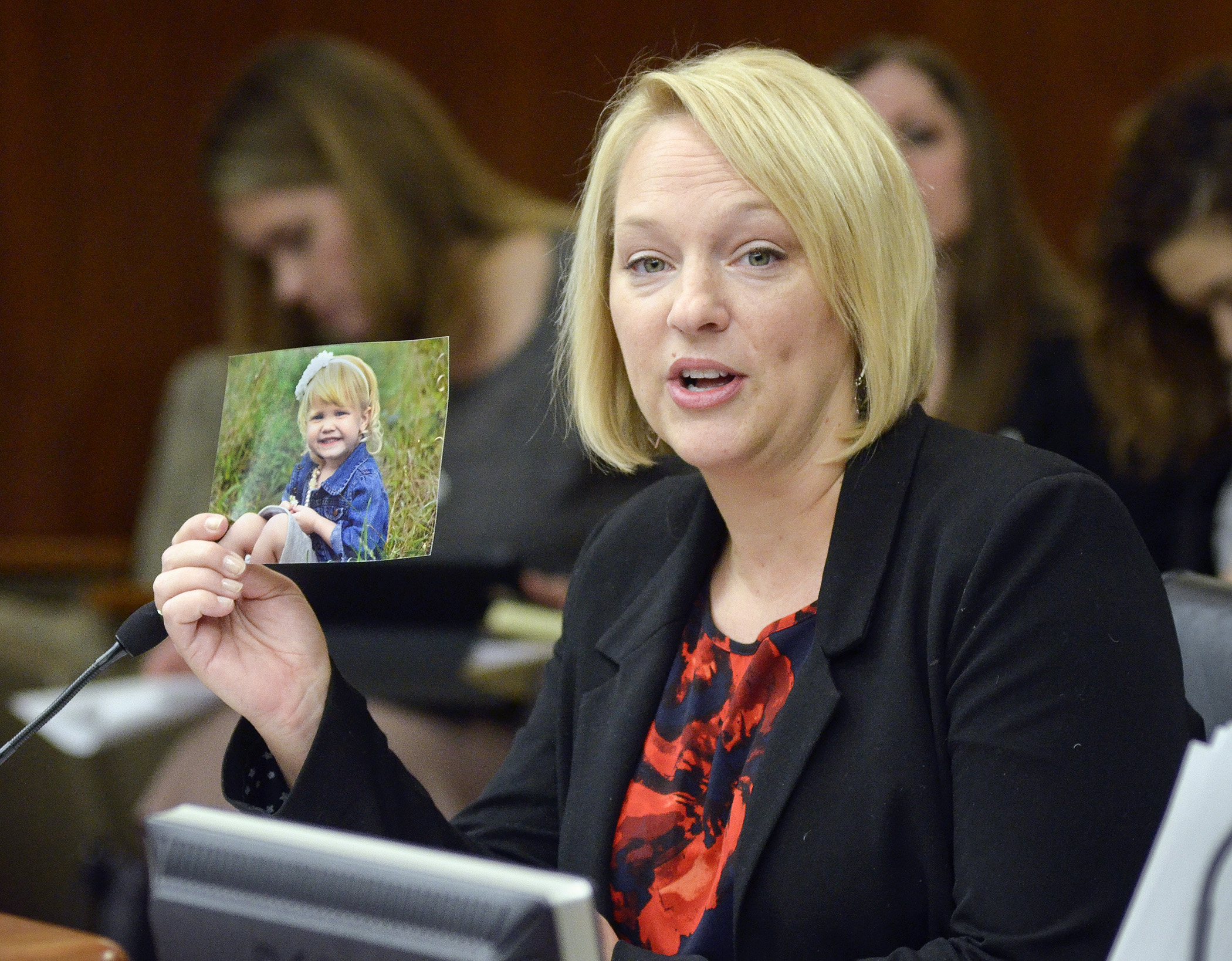Surrogacy policies need more thoughtful development, committee votes

How Minnesota should approach the practice of women carrying pregnancies for others was the topic before the House Civil Law and Data Practices Committee Thursday.
“Minnesota has not yet declared surrogacy contracts legal, valid or enforceable as a matter of public policy,” said Rep. Peggy Scott (R-Andover). “No meaningful analysis has been done, yet commercial surrogacy-enabling legislation ... has been introduced for consideration by the Legislature several times in the past few years.”
That calls for creation of a new legislative commission, Scott said. Under her bill, HF437, six House members and six senators, divided equally by party, would start work this summer. The commission’s task is to study issues ranging from exploitation of surrogates to contingencies in case of medical complications and other unexpected events.
A legislative commission is the best next step, said Autumn Leva, policy director for the Minnesota Family Council, because “we have now reached a political stalemate.” There is no consistent national policy to follow, she said: some states ban surrogacy arrangements, some ban only commercial arrangements in which the woman carrying the pregnancy is paid, and others allow all types of arrangements.
“Additional study is not a bad thing,” said Attorney Steven Snyder, past chair of the Minnesota State Bar Association’s family law section, but Scott’s bill isn’t the answer.
”There has been no hard data or study done that we can present to legislators that represents the definitive demographics or outcomes of surrogacy,” Snyder said. “Everything we say is anecdote. The proponents will say that the people testifying are economically interested. We will say that they’re coming from a religious bias against assisted reproduction. We won’t get anywhere.”
Chris Stinson, policy director for OutFront Minnesota, said his organization supports the idea of a panel tackling Minnesota’s “Wild West” surrogacy environment — as long as it includes specialists expert in areas related to the practice.
Testifiers shared emotional stories from their personal experience. Rep. Dave Baker (R-Willmar) told the committee his wife, Mary, was a gestational surrogate after her sister (who had had a partial hysterectomy) and brother-in-law lost their two children in a car crash. The nephew she carried is now 12 years old. Baker called Mary “a hero,” and said his family was “very proud” of having taken the opportunity “to give a family a second chance.”
Callie Kolkind of Princeton said she knew what she was doing when she became a gestational carrier and did not fit the stereotype of an “uneducated, low-income, subclass breeder.” She called “being able to give twins back to their parents” — including a woman born without a uterus — “the greatest gift of all.”
Kolkind and Nicole Monacell of Savage, who with her husband used the services of a gestational carrier, described their experiences with a battery of background checks, and medical and mental health exams, contracts, insurance, and work with social workers and medical professionals. Monacell said she viewed the move to form a commission as a “mistake” meant to serve a “political agenda.”
Scott said the commission would be modeled after the recent Legislative Commission on Data Practices and Personal Data Privacy, with legislators inviting contributions from stakeholders on a fact-finding mission. Rep. Debra Hilstrom (DFL-Brooklyn Center) said a regular legislative committee was a better vehicle for the work Scott has in mind. Rep. John Lesch (DFL-St. Paul) called the surrogacy issue “extremely polarize
The committee first approved Scott’s amendment changing the bill’s original language to closely match the companion, SF348, sponsored by Sen. Alice Johnson (DFL-Spring Lake Park), which awaits action by the Senate State and Local Government Committee. The panel then sent the bill to the House Government Operations and Elections Policy Committee on a divided voice vote.
Related Articles
Search Session Daily
Advanced Search OptionsPriority Dailies
Ways and Means Committee OKs proposed $512 million supplemental budget on party-line vote
By Mike Cook Meeting more needs or fiscal irresponsibility is one way to sum up the differences among the two parties on a supplemental spending package a year after a $72 billion state budg...
Meeting more needs or fiscal irresponsibility is one way to sum up the differences among the two parties on a supplemental spending package a year after a $72 billion state budg...
Minnesota’s projected budget surplus balloons to $3.7 billion, but fiscal pressure still looms
By Rob Hubbard Just as Minnesota has experienced a warmer winter than usual, so has the state’s budget outlook warmed over the past few months.
On Thursday, Minnesota Management and Budget...
Just as Minnesota has experienced a warmer winter than usual, so has the state’s budget outlook warmed over the past few months.
On Thursday, Minnesota Management and Budget...